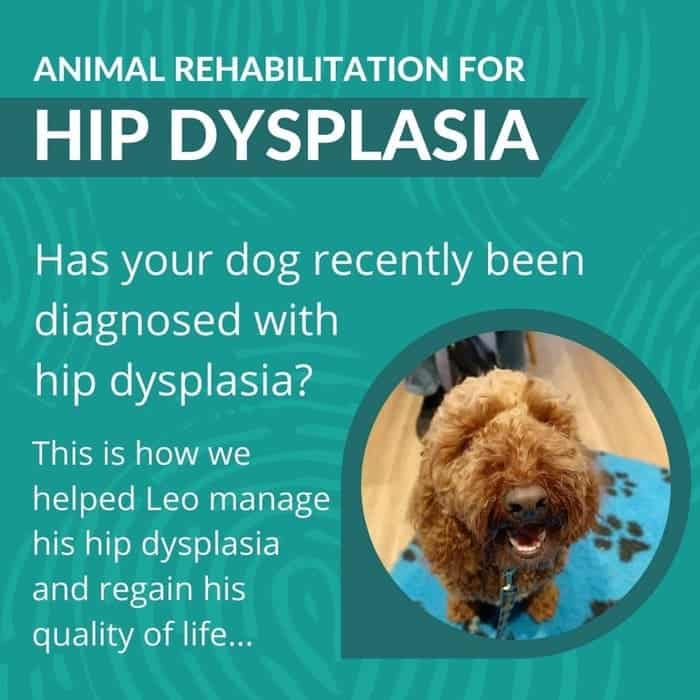
Hip dysplasia is a hereditary condition that in layman’s terms, means your dogs hip joint isn’t formed correctly. There can be several ways in which this happens, such as the ball and socket being different sizes, joint surfaces being shaped differently or the joint having too much laxity…or if you’re unlucky, all of those things at the same time. Whatever the cause, what you’re left with is a poorly moving hip that ‘rattles around’ & is met with early-onset osteoarthritis. The symptoms you may notice in your dog may include
In severe cases surgery may be necessary, however, in less severe cases your vet will usually opt to manage conservatively. Aside from the veterinary side of things, rehabilitation can play a complementary role in both non-surgical and surgical cases of hip dysplasia.
In non-surgical cases, our approach is usually to use rehab techniques to help manage the pain in the short term and build strength in the long term to stabilise the hip. When the hip is stable, your dog will have less pain, and the progression of arthritis is slowed. In some cases this will be enough to avoid surgery, other times the aim is to delay the time until surgery is required.
In surgical cases, the focus is more on building back strength because the hip will have lost a lot of muscle, not just after the surgery but in the months or even years prior to surgery when your dog has been avoiding using that leg.
Below is a quick case study on one of our patient’s Leo, who so far we’ve been successful in managing his hip dysplasia.
If you’d like to view the detailed report, you can see that here.
If you have a dog that has been diagnosed with hip dysplasia and would like to know more about how rehabilitation can be included in their management, get in touch with us by calling 02 9188 0863 or emailing [email protected]